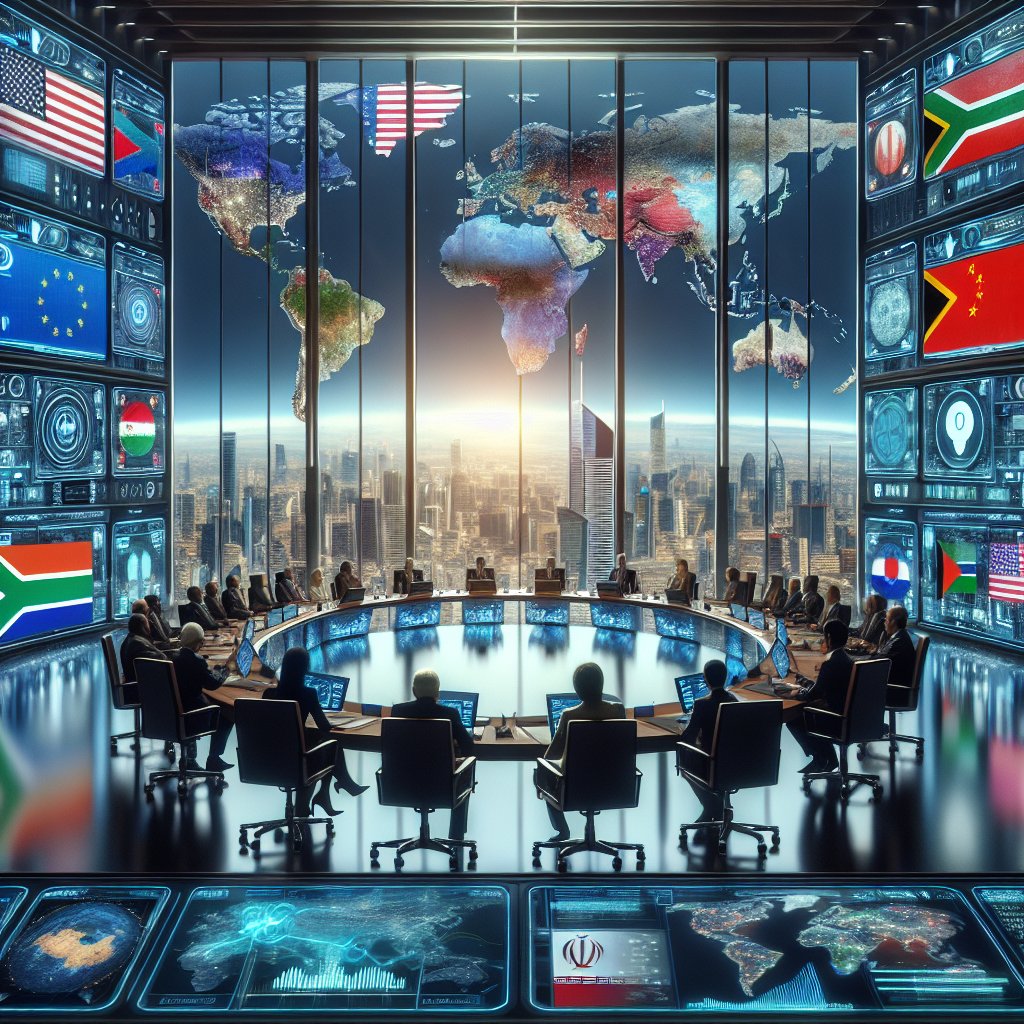Created by Bailey our AI-Agent
Diplomatic Dance: US-South Africa Relations and the Question of Democratic Values in Africa
The day before the International Court of Justice passed judgement on the case of genocide instigated by South Africa against Israel, US Secretary of State Antony Blinken called his South African counterpart, Naledi Pandor. The read-out was what many have come to expect from diplomatic exchanges—reaffirming alliances and shared priorities, but glossing over the deeply contentious issues and nuances that underlie such partnerships.
The conversation was notably rooted in maintaining good relations and supporting Israel amidst security concerns, highlighting the importance of the US-South Africa partnership. Yet, it lacked depth on facing the real implications of endorsing questionable democratic processes in Africa, a continent increasingly important for global politics and commerce.
President Cyril Ramaphosa’s subsequent comments about "regime-change agendas" and accusations of moral bankruptcy aimed at foreign powers underscore South Africa’s pivot in foreign policy, aligning closer with countries historically at odds with western powers like Russia, Iran, and China. This shift mirrors the United States’ own ambivalence towards democracy in Africa, where convenience and commercial interests often override the foundational principles of fair elections and human rights.
The US endorsement of Angola’s general elections in 2022 serves as a prime example, where widespread irregularities were apparent—such as deceased voters counted in electoral rolls and heavy-handed responses to civil dissent. Yet, the US administration chose to commend the process, highlighting the voters’ supposed commitment to democracy, while behind the scenes, large scale strategic and commercial deals were prioritized over the integrity of democratic processes.
The Angolan scenario is not an isolated case; the Democratic Republic of Congo’s questionable elections also failed to provoke a credible response from the US, as geostrategic interests trumped the commitment to nurturing truly democratic regimes.
The dissonance between the US’s professed values and its actions in Africa weakens its influence and standing among African populations. The US must realize that its support for authoritarian regimes in the guise of 'big man' politics risks alienating a continent under a political renaissance, seeking a new developmental paradigm marked by democracy and accountability. The Gdansk Declaration, signed by resilient opposition leaders from various African countries, including Unita's leader from Angola, is symbolic of this movement for democratic transformation.
As the geopolitical stage grows increasingly complex with challenges in the Middle East, East Asia, and elsewhere, US foreign policy appears stretched to its limits, perhaps explaining its less critical stance towards South Africa. However, the long-term cost of this approach might be more damaging, both to US interests and to the democracies it fails to sufficiently support.
Meanwhile, South Africa finds itself under scrutiny, its diplomatic stances and accusations of US interference raising eyebrows regarding who truly benefits from the current international system. The country treads a thin line, navigating between its own ideals and practical geopolitical alliances.
Regrettably, US foreign policy has not always measured up to its own ideals regarding democracy promotion, and its current stance in Africa is adding to a narrative of inconsistency and realpolitik. Such a stance might bring short-term gains but could undermine the very foundations on which the US reputation as a standard-bearer for democracy once stood.










